Australia So Much to See
New South Wales - The Pilliga Pottery and Barkala Farm
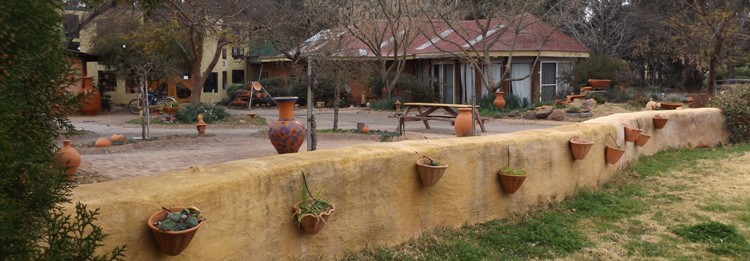
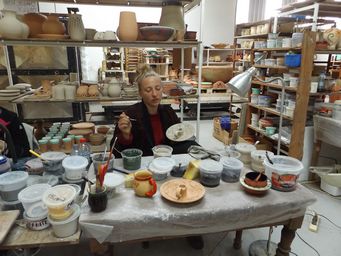
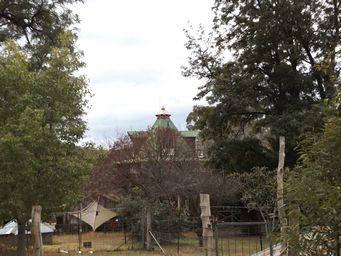
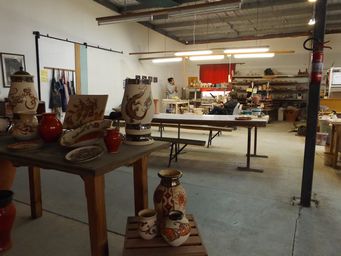
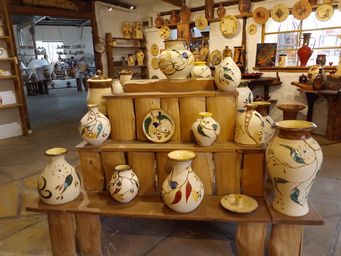
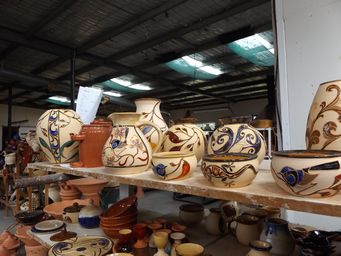
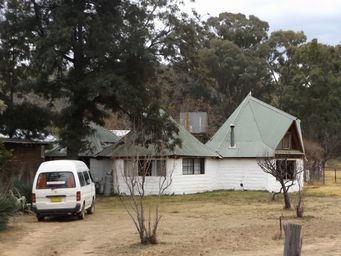
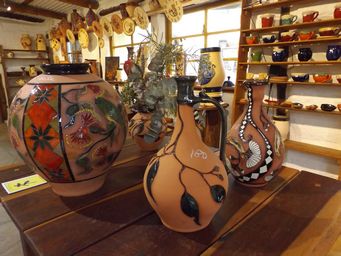
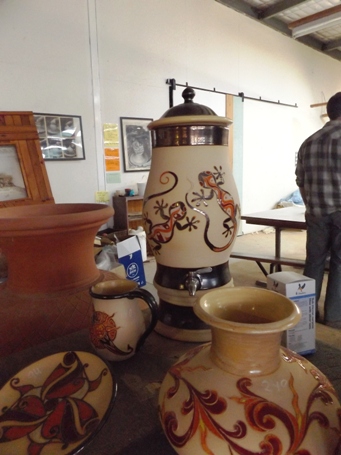
Just outside the Pilliga Forests, there is a little piece of Germany. The Pilliga Pottery on Barkala farm is well worth visiting,
even if you are not a potter or craft-person.
While having a meal or a coffee in the Blue Wren Café, read the story of the Pilliga Pottery. Maria and husband Richard, with their first baby, came to visit the area and loved it so much.
Finding a farm for sale, they put down a deposit and returned to Germany to sell their textile and pottery business and left their dairy farm home to make the purchase here in Australia.
Everything in this little ‘village’ was built by Richard and Maria and their family. A quaint building on stilts was a
school room for their children, for which a governess was employed is now hired for accommodation. With her adult children now
helping, founder Maria is still working in the lifestyle enterprise. Their governess has remained with the family, and is an
artistic designer in the pottery.
The pottery produces exquisitely painted pieces, in several themes, including blue wrens. Visitors are free to walk around the
workshop and stalk to the artists. They also run pottery workshops.
Young people from all over the world were working there as artists, in the café, accommodation areas, and on the farm.
As the international staff dined on sauerkraut and bratwurst, which is sourced from a German butcher, for lunch, it all smelled so
alluring that we regretted having had a picnic lunch on the way. Their extensive menu also includes wood fired pizzas. Produce is either grown on the farm or sourced locally where possible. Prices are very reasonable. We just had coffee
in this delightful environment.
The farm uses organic principals, and avoids plastics, such as plastic drinking straws in the café.
See more about visiting the Pilliga Pottery and Barkala Farm.
In 2004, on a quick trip from Western Australia to Queensland to purchase our present caravan, I took a wrong turn in Gilgandra and
after a while realised I was not on the right road. The “CO” markers roadside that falsely reassured me were in fact Coonamble,
not as I thought Coonabarabran which was our intended route. Easy, turn east from Gulargambone and drive through the Warrumbungle
National Park. What a lovely drive it was, which left me wanting to go back and explore the park and range in the future.
Thirteen years later I got my wish, when we included this as a priority when on a tour of New South Wales. See our travelogue
of the magnificent Warrumbungle National Park.